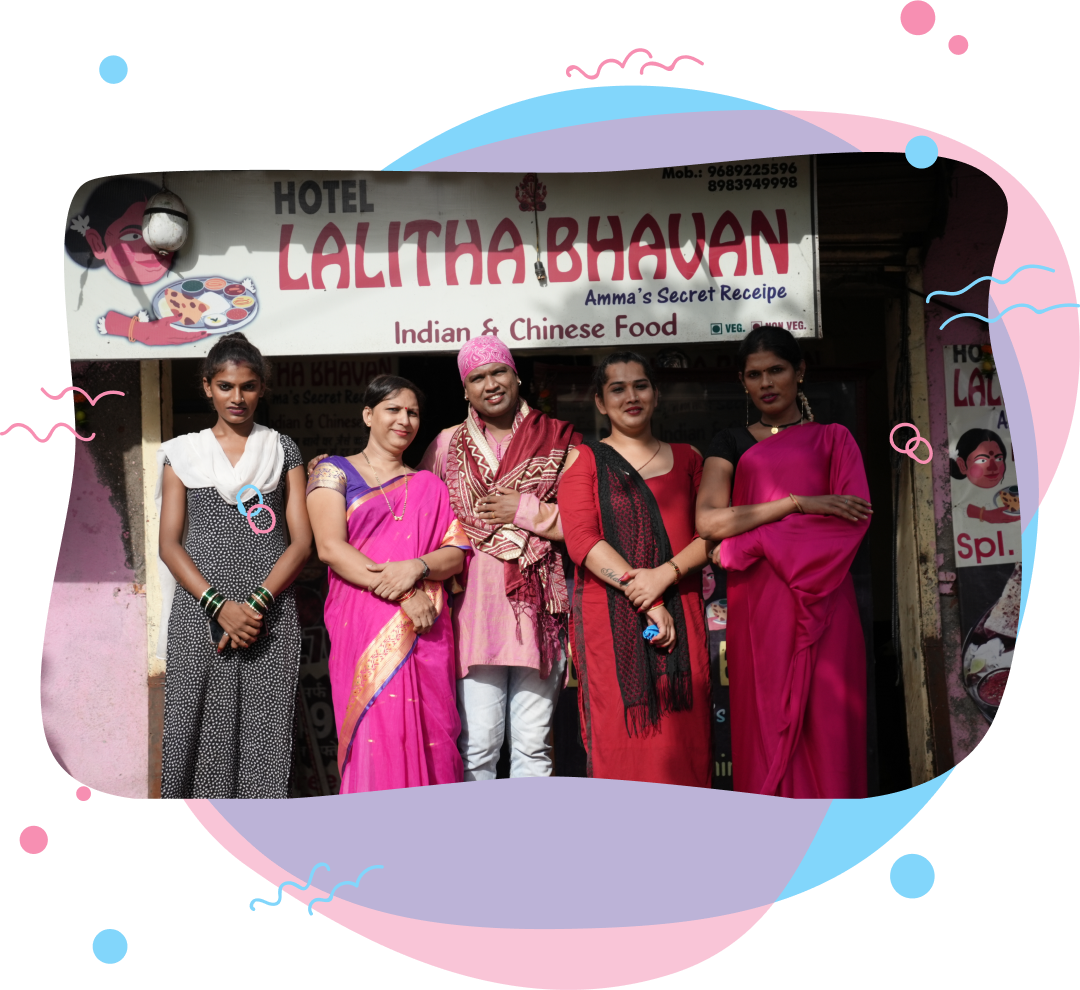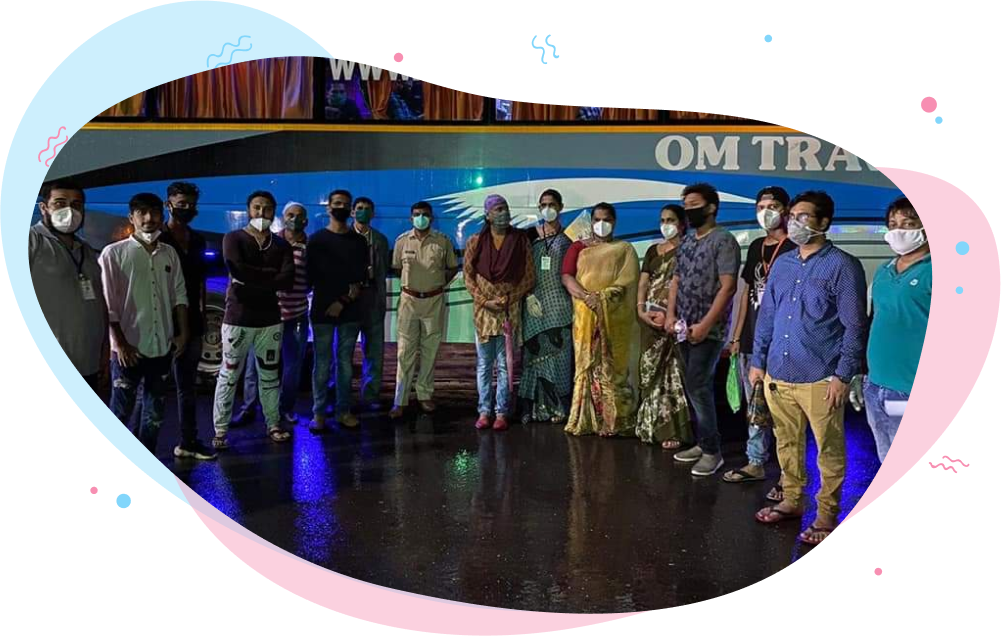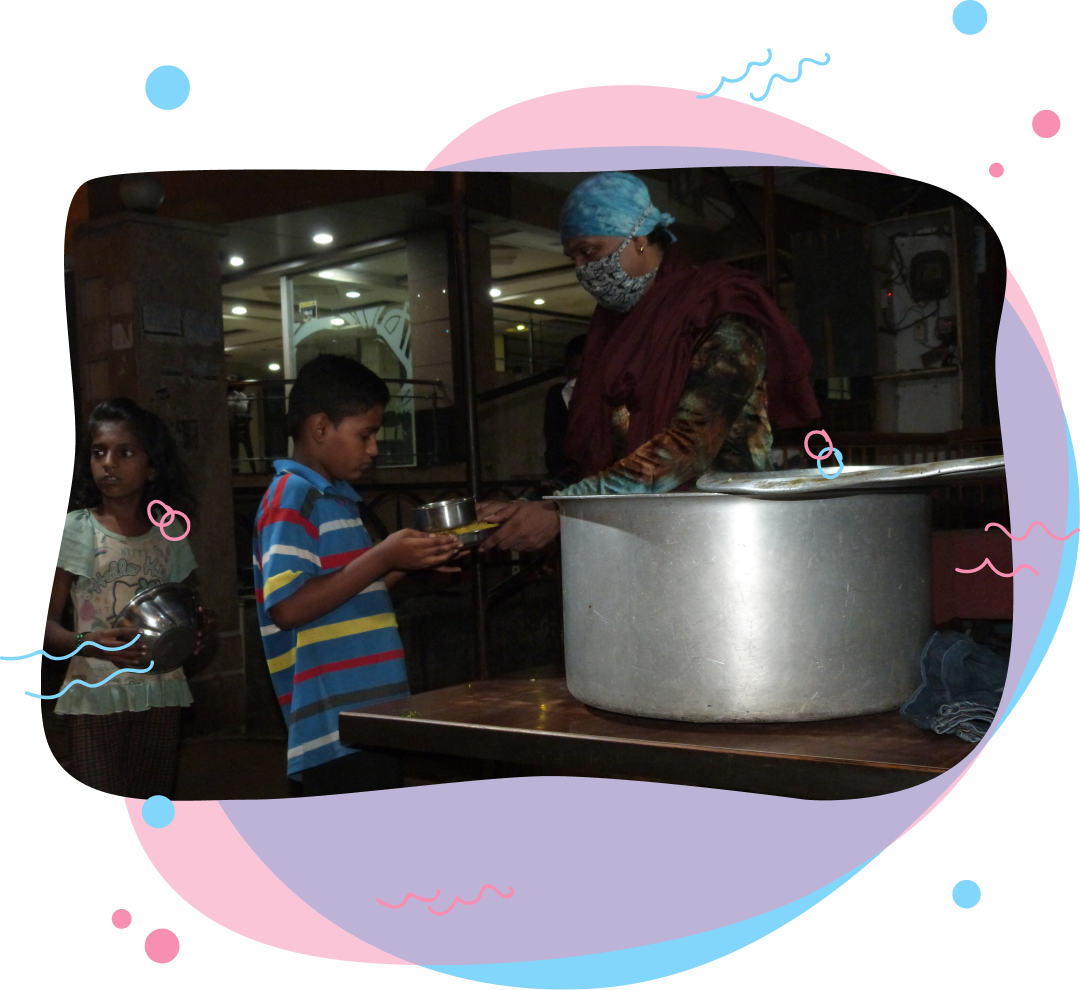Vision
To be a source of strength and support to the trans community as they navigate their journey from birth to economic freedom and stability.
Mission
- To create a platform for the parents or guardians of trans children. To help them understand the unique needs of their children without any stigma or fears.
Impact: In the next 5 years, support 200 trans children by equipping their parents or guardians appropriately - To support trans persons when a crisis strikes; a situation when navigating the journey is tough and when choices shrink leading to a vicious cycle.
Impact: In the next 3 years, support 100 trans people to live a life of their choice - To create a collective livelihood opportunity through a community kitchen, which will be predictable, scalable and will overlap with the other communities.
Impact: In the next 2 years, support 50 trans persons through the community kitchen initiative and feed 200 people belonging to any community on a daily basis
Doosra Ghar
Crisis Intervention CentreThe district of Thane has a population of approximately 7500 transgender persons.
Most of them are in occupations or social setups that push them into areas of distress. This could include identity crisis related distress as experienced in adolescence to sexual and physical violence experienced in certain employment conditions.
Society at large is still ill-informed about the biological, psychological and sociological aspects of a transgender person’s life. Ignorance about facts and figures often leads to bias and ostracization of trans persons. This leads to distress as well. Therefore, there is a strong need to create an ecosystem that addresses these various levels of distress and mitigates them as much as possible.
The Global Rights Foundation (GRF) has been at the forefront of serving this distressed population for the last decade. Having worked with many transgender people, the organization has got a better understanding of their compulsions and vulnerabilities. In this period, they have gained the trust and confidence of the trans community as well as authorities including the police, railway staff, traffic police. As well as academia and artists, lawyers and political representatives.
After 10 years of working in this area, the GRF sees the need for an awareness and sensitization drive with touchpoints such as schools and colleges, corporates and ordinary citizens. Such a drive can only be coordinated if there is a centre from where it is deployed. While such effective centers exist abroad and in other places in India, none exist in Maharashtra. The GRF would like to be the first to set up such a centre in Maharashtra and specifically in Thane.
The idea behind Doosra Ghar or “second home” is to give the physical, psychological and social support to the distressed in the transgender community which they would otherwise have received at home from loved ones.
The Need
The Intervention
The Impact
Lalitha Bhawan
The Community Kitchen


